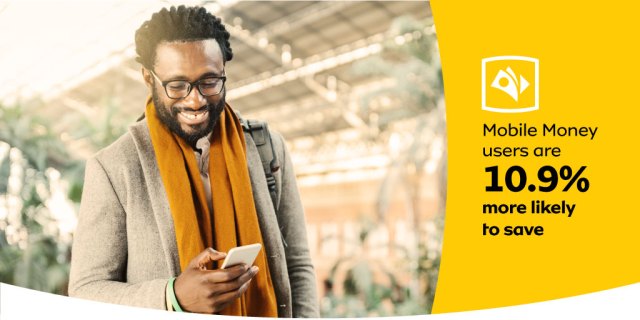
- Home
- About Us
- Sustainability
- Investors
- News
- People & Culture
-
Regions
RegionsAFRICAMIDDLE EAST
Becoming financially responsible is a goal people all over the world struggle with. Whether we earn enough to be financially spontaneous at times, or our bills ensure that every cent is spent, the cost of living always seems to increase just a bit more than our income. Saving any portion of that income is essential for many reasons including emergencies and our own personal goals. But saving requires discipline and a bank account. Temptation to spend our intended savings is usually deterred by putting the funds into a separate savings account. What happens when you don’t have a bank account? Financial institutions have repeatedly told us that it’s no good storing the money under our mattresses. For the millions of people in Africa with no access to traditional banks, the solution is Mobile Money.
Living from pay-check to pay-check is common in African countries, but Mobile Money is changing this way of living. According to a report from the Boston College Economics Department, Mobile Money users are 10.9% more likely to save than those who do not have a Mobile Money account.

There are 30 million MTN Mobile Money active monthly users across 14 countries in Africa. Of those 30 million people, 6 million use MTN Mobile Money to save funds.. This means that 6 million people in Africa plan to alter their financial behaviour. Just as a person with a traditional bank account would use a banking app or website to pay home loans, school fees, and then transfer a portion into a savings account, an MTN Mobile Money user can now do exactly the same.
A shift towards saving more brings incredible potential to Africa. Aside from being able to handle income variations, planning for the future becomes much more realistic. For example, working parents are able to save to provide their children with a higher education. In countries like South Africa, where the annual cost of university and boarding fees costs more than the average household income, it is essential to start saving for a tertiary education as soon as possible.
With more people who live in Africa able to use mobile money to save, there is a higher likelihood of saving for retirement. Mobile technology isn’t just about the chance to change the financial behaviour of people in Africa, by removing the barriers that prevent important tasks like saving money. Mobile technology can change the trajectory of everyone on the continent.